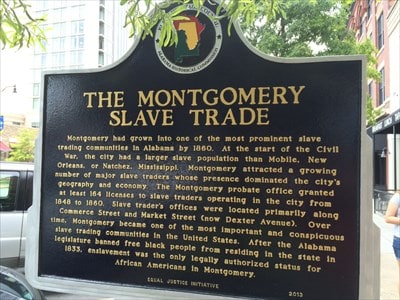The Alabama Brawl: Right or Wrong? Exploring the Christian Response to Racial Injustice
On this episode of Church on the Block, we have a profound discussion on the Montgomery Alabama brawl and its implications on racial dynamics, the church, and our communities.
Initial Reactions to the Alabama Brawl
The incident involved a white man refusing to move his boat for a black man, which sparked a heated debate among us. Pastah J, who has a special connection to Alabama, acknowledged the racial dynamics in the state and how things can unfold there. He emphasized the need to stand up for oneself and not let injustices slide, noting that this generation is different and less likely to passively accept such incidents.
Ruckus, on the other hand, highlighted that this incident shows how people are no longer willing to tolerate mistreatment and are willing to protect their own. He stressed the importance of recording such incidents and making the perpetrators face consequences. We all expressed our satisfaction with the response to the incident, but also acknowledged the conflict we feel as Christians and how we grapple with our calling in such situations.
The Incident in Montgomery: A Closer Look
We highlighted the racial dynamics of the situation and expressed our support for the victims. We also emphasized the importance of listening to the frustrations and pain of marginalized communities, particularly when they say “Black Lives Matter.”
We delved into the historical context of Montgomery as a slave depot and warehouse, where enslaved people were bought and sold. This history is connected to the present-day racial tensions and violence. We expressed our support for the victims and called for understanding and empathy towards marginalized communities.
Reflecting on the Historical Context
We reflected on the historical context of Montgomery, Alabama, particularly its history as a slave market and depot. We discussed the irony of the different response to the incident compared to the past, highlighting the importance of understanding the collective history of the area.
We mentioned the significant number of enslaved people in Alabama and the impact of slavery on the state’s population. We also mentioned the creation of an endowed chair of liberation studies in honor of Harriet Tubman and Frederick Douglass at Trinity United Church of Christ.
The Christian Response to Racial Injustice
Pastah J addressed the idea that the response to racial injustice should always be nonviolent, citing historical examples like the Black Panthers and the Nation of Islam who advocated for self-defense. However, he also acknowledged the importance of assessing each situation and not responding with violence automatically.
Ruckus added that while he initially felt excited about the idea of fighting back, he also recognizes the importance of peace and unity. He mentioned the need for both defenders and peacemakers in society and highlighted the role of creating peace and defusing situations whenever possible.
The Art of De-escalation
As a Gen Xer, I understand the perspective of the younger generation. I believe in de-escalation and avoiding trouble by recording and calling 911 when witnessing something going down. I admire the strength and courage of a young African-American man who was able to de-escalate a tense situation.
I quoted Bruce Lee, saying, “I practiced the art of fighting without fighting,” and suggested that as followers of Christ, we should strive to teach and pursue that level of strength and de-escalation. I shared a personal story of trying to stop a fight in the hood and emphasized the importance of assessing the situation and finding ways to bring peace and de-escalate, even in self-defense scenarios.
Conclusion
In conclusion, we must trust in the Lord in all situations. Just like trees gain strength when exposed to storms, we too can grow stronger through our experiences. As Christians, we must strive to be peacemakers, defenders, and advocates for justice, always seeking guidance from the Holy Spirit.
What are your thoughts about the infamous Alabama Brawl? Be sure to subscribe to the podcast. And remember you can catch Church on the Block Sunday mornings at 10 am est. | 9 am cst. on Holy Culture Radio, Sirius XM, Channel 154. Follow us on Instagram and join the discussion!

TIMECODE REFERENCES:
The incident in Montgomery, Alabama [00:01:56] Discussion about a white man refusing to move his boat for a black man and the lack of respect and racial dynamics involved.
Reactions and thoughts on the incident [00:02:48] The hosts share their initial reactions to the incident and discuss the changing mindset of this generation in responding to racial injustices.
The conflict of being a Christ follower [00:09:13] The hosts discuss the conflict they feel as Christians in responding to incidents like this and their calling to stand up for justice.
The white man refusing to move his boat [00:17:51] Discussion about the incident in Montgomery, Alabama where a white man refused to move his boat, leading to a brawl.
Reactions to the incident and self-defense [00:12:49] The hosts discuss their thoughts on the incident, including the use of self-defense and the appropriateness of the response.
Historical context of Montgomery Alabama [00:22:00] The history of Montgomery Alabama as a slave depot and the beginning of the domestic slave trade in 1808.
The history of Montgomery and the slave trade [00:22:43] Discussion on the historical context of Montgomery, including the slave market and the increase in enslaved people in Alabama.
The response to the incident in Montgomery [00:24:25] Reflection on the different response to the recent incident compared to the response in 1808, and the importance of understanding the collective history of the area.
The insight and breakdown of the incident [00:25:24] Appreciation for the deep historical context provided by Otis Moss and the understanding of the frustration and anger behind the incident.
The importance of self-defense in black movements [00:33:24] Discussion on the historical presence of self-defense in black movements for freedom and the need to assess appropriate responses.
The nuance of responding to violence [00:34:21] Exploration of the balance between pacifism and recognizing the nuanced nature of incidents, emphasizing the importance of assessing the situation.
The call to create peace and defuse situations [00:39:17] Highlighting the need to be peacemakers and defuse situations, while also acknowledging the role of self-defense and the importance of creating peace.
The young generation’s strength [00:43:05] Discussion on the strength and de-escalation skills of the younger generation in diffusing situations.
Teaching strength and de-escalation [00:44:00] Exploring the importance of teaching strength and ways to defuse conflicts, referencing Bruce Lee’s philosophy.
Trusting in the Lord [00:46:44] Encouragement to trust in the Lord in all situations, with a scripture reference from Psalm 27.
Related Radio Show: CHURCH ON THE BLOCK

